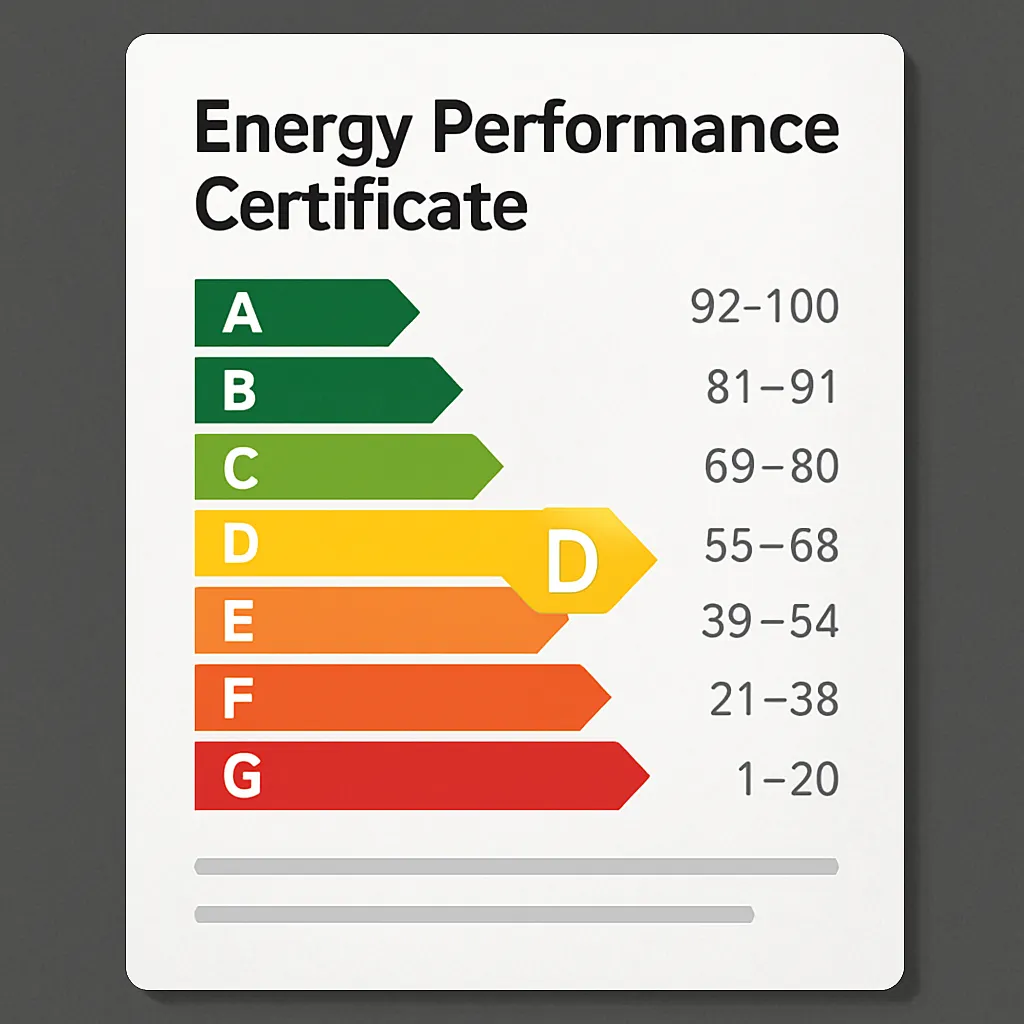What is an EPC? Energy Performance Certificate Explained Simply

If you’re thinking of selling or letting your property, you’ll need an Energy Performance Certificate (EPC). It’s not just a formality — it’s a legal requirement and can have a real impact on how buyers or tenants view your home.
In this guide, we’ll walk you through everything you need to know about EPCs: what they are, when you need one, and why they matter.
What is an EPC?
An EPC (Energy Performance Certificate) measures the energy efficiency of a property. It gives the home a rating from A to G — with A being the most energy-efficient and G being the least.
The certificate also includes practical recommendations on how to improve the property’s energy performance. Things like adding loft insulation, upgrading to double glazing, or installing a more efficient boiler can all help lift your rating.
When Do You Need an EPC?
If you’re selling or letting a property in the UK, you must have a valid EPC before the property is marketed. It’s also needed for newly built properties.
There are a few exceptions — for example, listed buildings or places of worship may not need one — but for most homes, it’s a legal requirement. Failure to provide an EPC can result in a fine.
How Long is an EPC Valid?
An EPC lasts for 10 years. Once issued, you can reuse it as many times as needed within that period, as long as no major changes have been made to the property that would affect its energy performance.
If you’ve made improvements, such as new insulation or solar panels, it might be worth getting a new EPC to show off the better rating.
How to Get an EPC
An EPC must be carried out by an accredited Domestic Energy Assessor. Many estate agents and letting agents can help you arrange one, or you can contact an assessor directly.
The cost usually ranges between £60 and £120, depending on the size and location of the property.
Why EPCs Matter
A good EPC rating can make a property more attractive to buyers and tenants. With rising energy costs, energy efficiency is becoming a bigger priority for many people.
If your property has a low rating, the EPC report will suggest cost-effective improvements you can make. Even small changes, like swapping to energy-efficient light bulbs, can make a difference.
Landlords should also keep in mind that government regulations are tightening. Rental properties must currently have at least an E rating, but future rules are likely to demand even higher standards.
Final Thoughts
If you’re getting ready to sell or let your property, don’t leave the EPC until the last minute. It’s a simple step that can save you hassle later on — and if your rating is on the lower side, early action could help you boost your property’s appeal.
If you need help arranging your EPC or preparing your home for the market, speaking to a trusted North West estate agent can make the process much smoother. Local experts will guide you through every step and ensure you meet all legal requirements.






